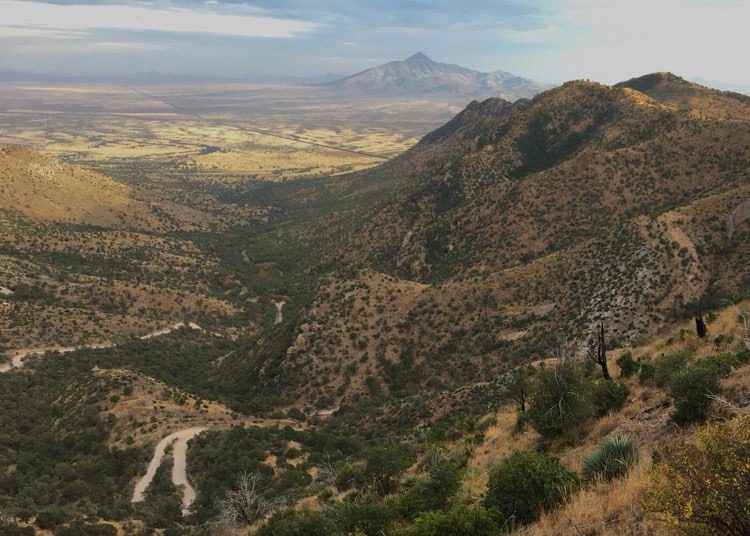It is one thing to domesticate and quite another to dominate. In order to survive, reproduce and expand, humanity domesticated nature while at the same time, nature domesticated humanity. It was a reciprocal phenomenon, a coevolutionary process.
Domesticating implies knowing, exploring, questioning and dialoguing with what is domesticated. It carries delicacy. In contrast, the one who dominates imposes, crushes, suppresses, overwhelms and exploits. Of the 300,000 years, the time of existence of the human species, it wasn’t until about 4,000 years ago that the domesticating impulse prevailed. Then it began to be replaced by an unprecedented desire to dominate.
Para leer este artículo en Español haz click AQUÍ
Hierarchical societies appeared and the dominance of some over others and over nature became normal. Parasitic and predatory elites appeared that exploited the labor of humans and of nature. Today we have reached the pinnacle of that situation with the arrival of industry, science, technology, capitalism and fossil fuels (coal, oil, gas, uranium). Today we suffer the results.
As noted above, the progressive domestication of nature also domesticated the human species, that is, civilizing the species in social terms: humanizing it. As the scale and power of domestication increased, human groups learned to work collectively through cooperation, consensus and agreements, tolerance and solidarity, knowledge and memory.
This culture has been annulled by industrial modernity and its cognitive, economic and technological devices. Sickened with amnesia, the modern era has ended up imposing the mandate of its worldview: the dominance of the human over the natural and the masculine over the feminine.
We are living in a new age of barbarism. The paradox is overwhelming: despite the advances and achievements of the modern world, its main flaw, its cardinal sin, is the pathological desire to dominate, its obsession with power.
And this obsession marks both the state and capital, the party and the market, the government and the company. The famous Czech philosopher Karel Kosik, who lived through both the communist period and the capitalist era, stated in his book Antediluvian Reflections (Itaca, 2012):
“The system of real socialism that failed in Central and Eastern Europe worked by convincing people that the superior reason of society was personified and embodied by the Party, which therefore had the monopolistic and inalienable right to direct, order and regulate anything: from the economic, the political and the cultural to the scientific and the military … By the same token, today the market attributes to itself a monopoly position and refuses to consider that anything distinct, different, can be at its height and even less above it. The market is a mortal danger for culture”.
As we argued in an earlier article, only social or citizen power can limit and nullify the dual threat that for thousands of years has subsumed human beings. Today we can identify at the individual level what bureaucrats and bourgeois alike adopt as pathological behaviors. Modernity cloaks a state of barbarism that defends competition, greed, individualism, ambition, and the insatiable desire for power. This barbarism is present equally in those who govern through the State (regardless of ideology) and in those who head companies and corporations. That’s why complicity or collusion between rulers and capitalists has been so easy in the neoliberal phase.

The world is sick of corruption and theft, as witnessed by the increasing number of events such as failed governments, the excessive growth of monopolies and fortunes, social inequality and ecological destruction. This situation comes from the loss of a civilizing evolution based precisely on values opposed to those of modern, industrial society. Arrogance is the trait that guides modern people, and it contrasts with humility, which affirms a very valuable attribute: compassion, or the ability to forgive and be forgiven.
We need to visualize and build a postmodern world that identifies arrogance as the evil to be overcome and replaces it with an ethic of humility and compassion. This is, by the way, the ethic adopted by citizens who acquire consciousness (see my book Los Civilizionarios, 2019). Today anyone can identify arrogance in the public official, in the employer, in the most modest employee, in the relative or in the colleague. This will mean taking up again the cultural process abandoned by a civilization that represents barely 0.1% of human history. This means confronting on a psychological level the contradiction that feeds, maintains and increases the tremendous social and environmental crisis that threatens us today.
Victor M. Toledo, research scientist at the Institute for Ecosystem and Sustainability Research (Instituto de Investigaciones en Ecosistemas y Sustentabilidad), Morelia Campus UNAM, is a Mexican biologist with PhD from the National Autonomous University of Mexico (UNAM). Dr. Toledo has combined his scientific training with studies in economic policies, agrarian cultures and rural sociology. An expert in ethnoecology (the cross-cultural study of how people perceive and manipulate their environments), his studies and theoretical contributions regarding the relations between indigenous cultures and the natural world are recognized internationally. Dr. Toledo served as head of the Secretariat of the Environment and Natural Resources (SEMARNAT) in the administration of Mexico President Andrés Manuel López Obrador from May 2019 to September 2020. See also: Victor M. Toledo, Biologist, Ethnoecologist: “Passionate for Life”.
This article was translated by Jane K. Brundage. It was originally published in Spanish in La Jornada and is reposted here with permission.
- Community Defenders of the Territories Moving Forward - March 24, 2022
- Pablo Alarcón and his luminous environmentalism - March 11, 2022
- My Manifesto: Toward a Politics for Life - January 27, 2022
Excellent! Clearly and concisely identifies the core cause of the multitude of ever-increasing problems we now face.